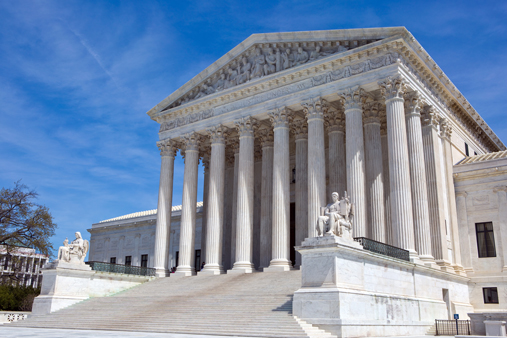The Illinois Supreme Court recently held that the long standing rule in Illinois which requires all parties to consent to the recording of a conversation is an overly broad infringement of free speech rights and is unconstitutional, People v. Clark, 2014 IL 115776 (March 20, 2014) and People v. Melongo, 2014 IL 114852 (March 20, 2014). The Illinois Supreme Court’s ruling will leave it up to the Illinois legislature to draw a more precise line between the protection of an individual’s privacy and the protection of free speech rights. Although both rulings were criminal cases, these rulings impact Illinois employers.
Until these decisions and absent and applicable exception (such as the telemarketing exception), Illinois was a “two-party consent state” which prohibited the audio recording of any conversation unless all parties to the conversation consented to the recording. In Clark and Melongo, the Illinois Supreme Court determined that Section 14-2(a)(1) of the Illinois eavesdropping statute is unconstitutional on its face because a substantial number of its applications violate the first amendment.
In reaching this determination, the Illinois Supreme Court noted that the statute criminalizes the recording of all conversations, including those that “cannot be deemed private,” including a loud argument on the street, a political debate in a park, yelling fans at an athletic event, the public interactions of police officers with citizens or any other conversation loud enough that the speakers should expect to be heard by others. Based on these factors, the Illinois Supreme Court determined the recording provision burdens substantially more speech than is necessary to serve the interests of the statute and is therefore overbroad. The Illinois Supreme Court also held the defendant could not be constitutionally prosecuted for divulging the contents of the conversation she recorded if she could not be constitutionally prosecuted for recording the conversation in the first place.
Prior to these decisions, Illinois employers did not need a rule prohibiting recording conversations in the workplace because the Illinois eavesdropping statute protected employees from surreptitious recordings. That protection is now gone. From a management standpoint, there can be strong business justifications for a ban on recording or videotaping in the workplace. For example, non-consensual recording or videotaping of conversations can have a disruptive effect on workplace morale and productivity. Employees may now think these new rulings permit them to use cell phones or other hidden recording equipment to secretly tape conversations with managers or co-workers.
Employers with operations in Illinois should strongly consider drafting policies that prohibit recording conversations. If you have such policies in place, you should review them to ensure that they are appropriate in light of these new decisions. Finally, it would be prudent to remind your employees they are prohibited from making such recordings in connection with their work.
Illinois v. Clark can be found here. Illinois v. Melongo can be found here.
For more information, please contact the Barnes & Thornburg Labor and Employment attorney with whom you work, or a leader of the firm’s Labor and Employment Department in the following offices:
Kenneth J. Yerkes
Department Chair
(317) 231-7513
John T.L. Koenig
Atlanta
(404) 264-4018
David B. Ritter
Chicago
(312) 214-4862
William A. Nolan
Columbus
(614) 628-1401
Eric H.J. Stahlhut
Elkhart
(574) 296-2524
Mark S. Kittaka
Fort Wayne
(260) 425-4616
Michael A. Snapper
Grand Rapids
(616) 742-3947
Peter A. Morse
Indianapolis
(317) 231-7794
Scott J. Witlin
Los Angeles
(310) 284-3777
Teresa L. Jakubowski
Washington, D.C.
(202) 371-6366
Janilyn Brouwer Daub
South Bend
(574) 237-1139
Visit us online at www.btlaw.com, and don’t forget to bookmark our blogs at www.btlaborelations.com and www.btcurrents.com. You can also find us on Twitter at www.twitter.com/btlawle.
© 2014 Barnes & Thornburg LLP. All Rights Reserved. This page, and all information on it, is proprietary and the property of Barnes & Thornburg LLP. It may not be reproduced, in any form, without the express written consent of Barnes & Thornburg LLP.
This Barnes & Thornburg LLP publication should not be construed as legal advice or legal opinion on any specific facts or circumstances. The contents are intended for general informational purposes only, and you are urged to consult your own lawyer on any specific legal questions you may have concerning your situation.
Visit us online at www.btlaw.com and follow us on Twitter @BTLawNews.

















/Passle/6488d4630e7e25c9ac9f834a/MediaLibrary/Images/2024-07-18-19-15-33-047-669969d52008239f764a11af.png)


/Passle/6488d4630e7e25c9ac9f834a/SearchServiceImages/2024-07-17-15-17-44-967-6697e0980752df56d2441ada.jpg)
